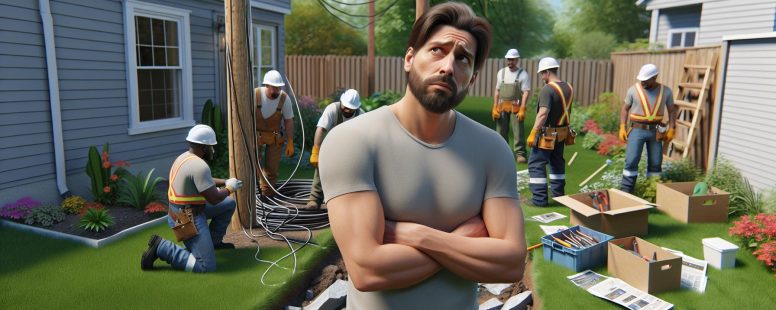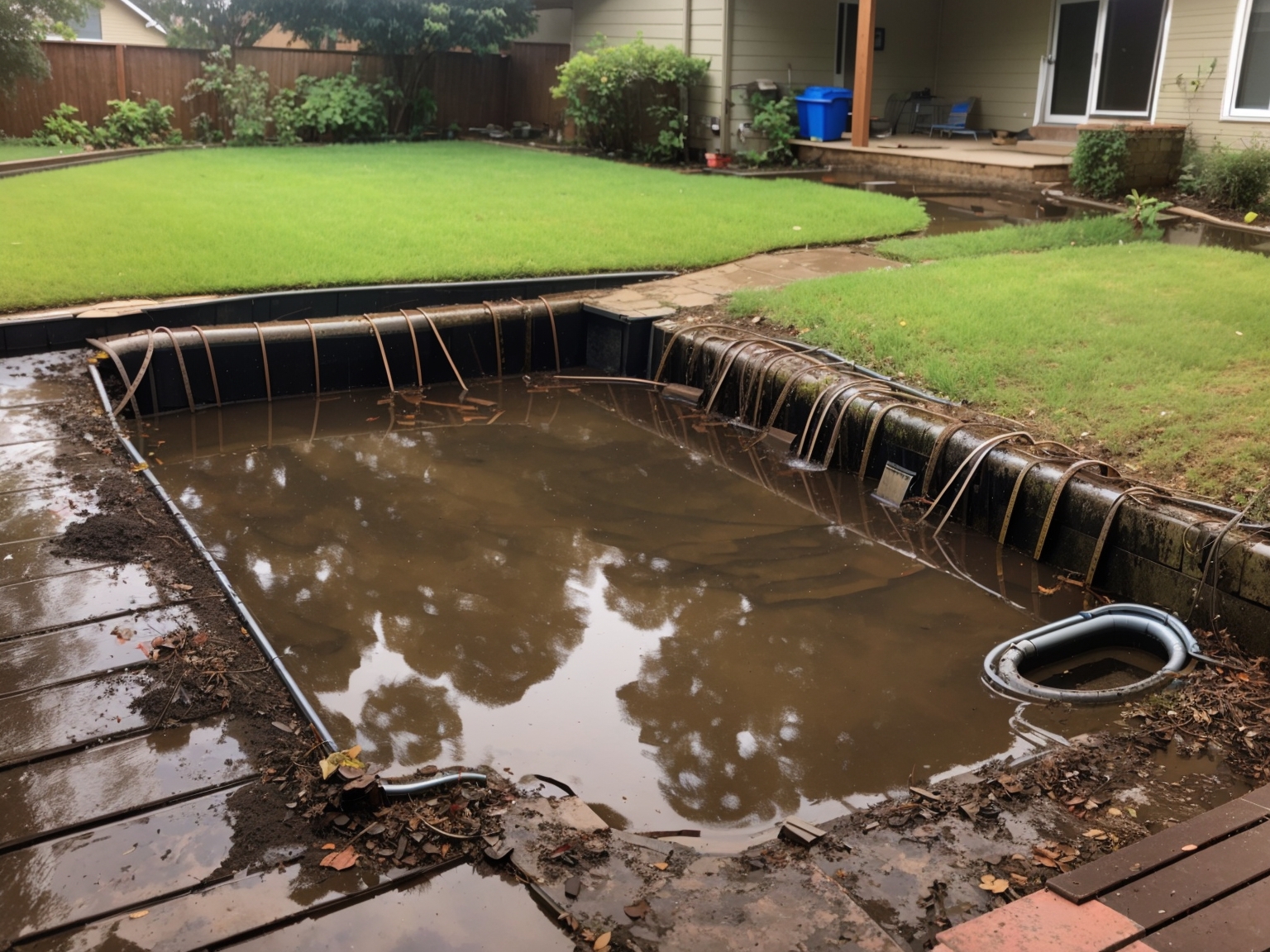Can Utility Companies Force Easements? Understanding Your Property Rights
Ever wondered about the power dynamics between utility companies and property owners? You’re not alone. It’s a common question: can a utility company force an easement on your land?
Before you start worrying, let’s clear some air around this topic. An understanding of what exactly is at stake here could be crucial for both homeowners and business proprietors alike.
So grab your detective hat as we investigate into the world of utilities, property rights, and legal complexities that might just surprise you! Stay tuned to unveil how these seemingly mundane issues may impact you more than you think.
Understanding Utility Easements
In the area of property rights, utility easements play a pivotal role. To grasp this concept thoroughly, let’s break it down into more digestible parts.
What is a Utility Easement?
A utility easement, in its most basic form, serves as a legal agreement that grants utility companies access to certain portions of your property for specific purposes related to their services. This means they’re authorized to install and maintain equipment such as power lines or pipelines across your land – ensuring essential amenities like electricity and water reach everyone efficiently.
For instance: If there’s an electrical pole situated on your plot but supplying energy beyond just your home; you’ve got yourself entangled with an electric company’s easement!
Importance of Utility Easements
Utility easements bear significant importance not only for service providers but also homeowners alike. These agreements ensure uninterrupted supply chains — no one wants blackouts due to inaccessible malfunctioning transformers!
Also, these contracts help delineate responsibilities concerning repairs and maintenance tasks between parties involved which provides clarity in case any issues arise later on – both sides know what they signed up for initially.
An example would be when storms knock down powerlines traversing through private lands; if established correctly from the start who handles damages or reconstruction efforts won’t become points of contention amidst chaos.
Can a Utility Company Force an Easement?
Following the understanding of utility easements, it’s essential to investigate into whether a utility company can force these legal agreements.
Legal Grounds of Utility Companies
Utility companies operate within strict regulations that dictate their actions concerning private property. In many instances, they hold what is known as ’eminent domain’ rights – laws that permit certain entities such as public utilities and governments to acquire private land for public use without the owner’s consent.
For example, consider a scenario where there are no existing power lines in your neighborhood and construction becomes necessary for service provision or enhancement. Herein lies one case when eminent domain could come into play; given that this infrastructure serves the community at large.
Yet it’s important not to mistake this right as absolute freedom on part of utility companies – far from it! Laws surrounding these issues vary greatly by state and often require proof from said company proving necessity before any action takes place.
Also, compensations follow under circumstances involving forced easements per fair market value principle. But specific details may differ based on local legislation.
Circumstances under Which Easement can be Forced
Specific conditions might warrant forced imposition of an easement by a utility company:
- Public Necessity: Instances requiring new infrastructural development like electricity pylons or gas pipelines necessitate access through privately-owned lands.
- Existing Agreements: Pre-existing arrangements outlined during property acquisition sometimes include provisions allowing future installation/maintenance work if needed.
- Legal Disputes & Court Orders: If disagreements arise between parties about maintenance/repair responsibilities around current installations (e.g., underground cables), courts might enforce changes upon reviewal consideration.
This does but mean you’re completely powerless against them? No way! Understanding your rights provides leverage during negotiations with potential trespassers onto your territory — even when dealing with high-powered organizations like utilities providers!
Remember, always consult with a real estate attorney or expert when dealing with these matters to ensure your rights are protected and you get the best outcome.
Homeowner’s Rights against Forced Easements
As a homeowner, you possess rights that protect your property from forced easements. These protections come in the form of legal statutes and precedents.
Legal Protections for Homeowners
Various laws safeguard homeowners against involuntary utility easements. For instance, the Fifth Amendment to the United States Constitution provides protection under its Takings Clause – “private property [shall not] be taken for public use without just compensation.” This clause ensures fair treatment when an entity like a utility company needs part or all of your land for public benefit.
States also offer protective measures within their legislation. In California, Public Utilities Code 625 grants specific powers to gas corporations but with certain conditions attached. It allows these companies access across private lands if they’ve obtained consent from owners or through court proceedings ensuring due process.
The local ordinances often complement state-level regulations by setting rules about where utilities can install infrastructure on properties (for example: away from tree roots), so providing additional safeguards to homeowners’ interests.
Disputing a Forced Utility Easement
If you find yourself facing an imposed easement request by a utility company, it’s important to know how best handle this situation:
- Consult with professionals – Engage real estate attorneys who specialize in easement disputes as early as possible.
- Understand Your Property Rights – Familiarize yourself with deeds and plats related to your home; sometimes previous agreements include limitations on future developments.
- Investigate Local Laws – Find out what provisions exist at municipal levels about forced utility installations
- Negotiate Compensation – If losing some control over parts of your land is inevitable due do eminent domain claims then negotiate terms including fair compensations
- Litigate if necessary- Should negotiations reach impasse consider bringing matter before courts
Potential Implications of Forced Easements
You’re about to investigate into the potential consequences that forced easements can have on property owners. This section aims to dissect two critical areas: impacts on property value and influences on property use.
Impacts on Property Value
A forced easement might affect your land’s market worth significantly, with variables such as type, size, and location playing a crucial role. For instance, an electrical power line cutting through your backyard may detract prospective buyers due to visual unattractiveness or perceived health risks associated with electromagnetic fields.
Also, these involuntary agreements could limit future development possibilities for your parcel—another factor decreasing its desirability in real estate markets. In some cases like Massachusetts v EPA (2007), courts determined utility companies owe fair compensation if their actions diminish property values substantially.
Henceforth it becomes apparent how vital it is for homeowners facing imposed easement requests not only to consult legal experts but also engage experienced appraisers who’d assess possible depreciation caused by unwanted intrusions from utilities.
Influences on Property Use
An enforced utility right-of-way often comes packaged with restrictions affecting what you can do within the designated area—a situation potentially throwing spanners into any grand plans you’ve been nurturing about landscaping or building extensions!
Intruding cables running underground complicate planting certain types of trees whose roots risk damaging infrastructure while overhead wires rule out constructing multi-story buildings in those sections. That’s why knowing specific details about proposed easements aids immensely when planning home improvement projects – ask Pacific Gas & Electric Co vs City of Oakland case where city planners had mistakenly assumed unrestricted usage rights over privately owned lands hosting gas pipelines!
Besides remember even after granting access permissions doesn’t mean living undisturbed lives–utility providers retain rights conducting routine inspections or emergency repairs so adding elements unpredictability onto daily routines.
So understanding all implications including both physical constraints imposed upon properties alongside alterations in everyday life patterns proves essential when exploring potential forced easement scenarios.
Avoiding Forced Utility Easements
Exploring the complexities of utility easements, particularly forced ones, involves a blend of negotiation skills and legal knowledge. This section sheds light on two essential strategies: negotiating with utility companies and employing legal measures.
Negotiating with Utility Companies
Negotiations serve as your first line of defense against unwanted utility easements. It’s an opportunity to assert your rights as a property owner before resorting to court proceedings.
- Initiate discussions early: Begin conversations once you receive notice about the planned easement from the company.
- Understand their needs: A clear understanding helps tailor counterproposals that protect both parties’ interests—for instance, suggesting alternate routes for pipelines or power lines.
- Seek professional help: Engage experienced real estate attorneys who can provide invaluable advice during negotiations.
Remember! Always document all communications—emails, letters—to establish a paper trail in case future disputes arise.
Legal Measures to Prevent Forced Easements
When negotiations fall through or if you feel unduly pressured by utilities companies asserting their eminent domain powers — it might be time for more robust actions:
- Research Local Laws – Familiarize yourself with specific regulations within your jurisdiction about private land use for public benefit.
- Hire Real Estate Attorney – Their expertise aids in crafting strong arguments based on local laws and past judgments similar cases have seen.
3.Court Litigation– If necessary,and supported by sound legal counsel,take matters into court.This step serves dual purposes; it challenges the imposed access right while simultaneously delaying any construction activity until judgment is passed.
Conclusion
Exploring the complex waters of utility easements can feel daunting. You’ve seen that while it’s possible for a utility company to force an easement on your property, you’re not without recourse or rights in this scenario. The key lies in understanding these complexities and preparing accordingly.
By engaging early with utilities and seeking legal counsel, you can protect both your interests and property value from potential impacts. Your knowledge about local laws will also empower you during negotiations or even court proceedings if they become necessary.
Finally remember: forced easements might be inconvenient but are essential elements ensuring we all have access to critical services like electricity, water, gas etc., proving once again – informed homeownership is more than just owning land; it’s being aware of what happens above ground as well!
- Decorating Your Backyard with Homemade Birdhouses: Creative Ideas to Attract Birds & Beautify Your Garden - October 3, 2025
- Creating Stepping Stones with Kids: A Fun Backyard Project for Family Bonding and Creativity - October 3, 2025
- Where Can I Sell Pottery Locally? Best Places and Tips for Selling Handmade Ceramics - October 3, 2025




